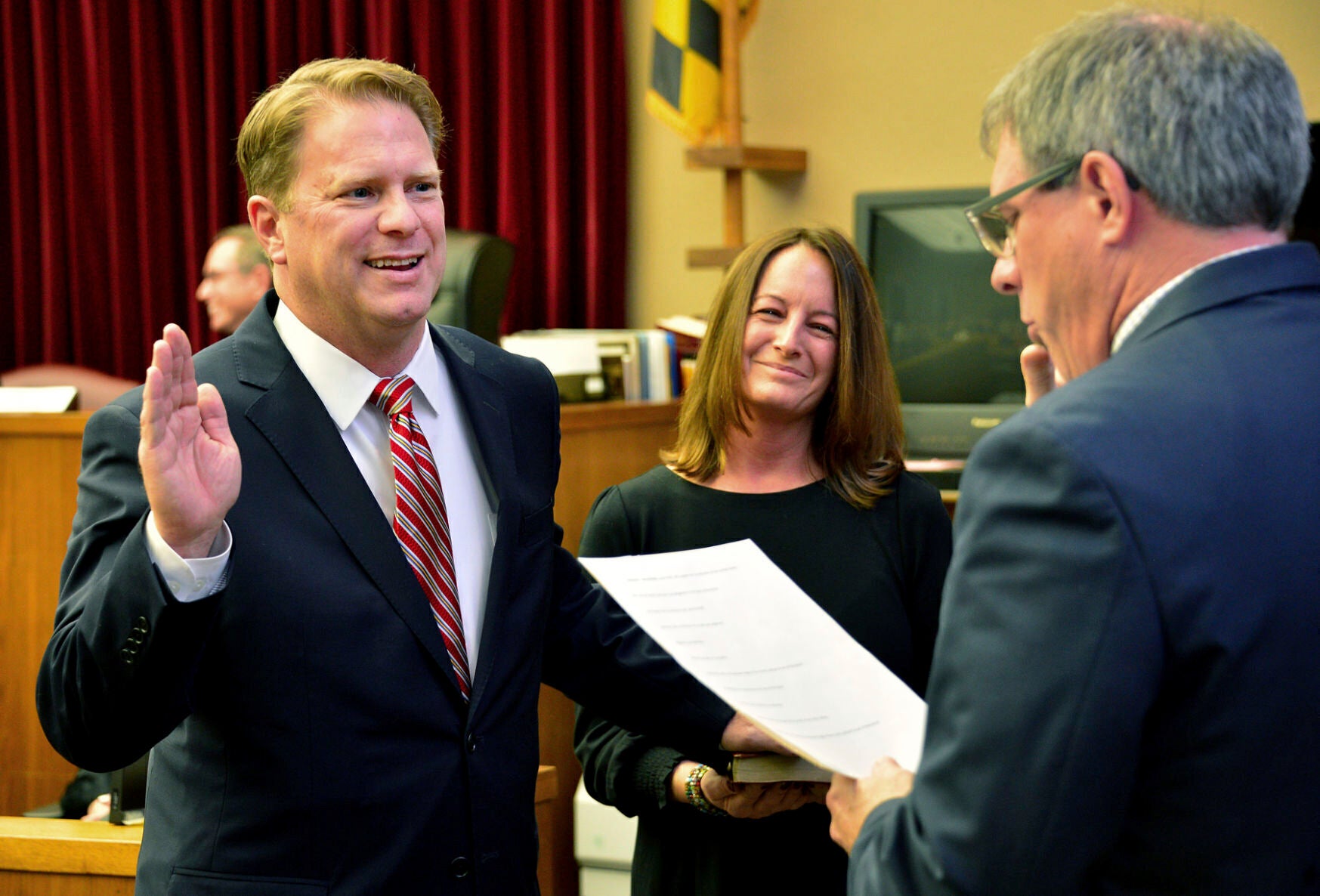Maryland judges' personal information protected under bill passed by Senate after fatal shooting
Maryland judges could shield personal information online to prevent hostile people from tracking them down, under a bill passed by the state Senate

Your support helps us to tell the story
From reproductive rights to climate change to Big Tech, The Independent is on the ground when the story is developing. Whether it's investigating the financials of Elon Musk's pro-Trump PAC or producing our latest documentary, 'The A Word', which shines a light on the American women fighting for reproductive rights, we know how important it is to parse out the facts from the messaging.
At such a critical moment in US history, we need reporters on the ground. Your donation allows us to keep sending journalists to speak to both sides of the story.
The Independent is trusted by Americans across the entire political spectrum. And unlike many other quality news outlets, we choose not to lock Americans out of our reporting and analysis with paywalls. We believe quality journalism should be available to everyone, paid for by those who can afford it.
Your support makes all the difference.Maryland judges would be able to shield their personal information online to prevent hostile people from tracking them down, under a bill the state Senate passed Thursday in response to the fatal shooting of a judge in his driveway.
The Senate voted 43-1 for the Judge Andrew F. Wilkinson Judicial Security Act, named for the Maryland circuit court judge who was shot by a man just hours after Wilkinson ruled against him in a divorce case and awarded custody of his children to his wife in October.
“He was murdered for serving our state, for doing his job and for protecting the children in a domestic case,” said Sen. Paul Corderman, a Washington County Republican who sponsored the bill, adding that “this vicious attack requires immediate action.”
Corderman noted before the vote that his own father was a Maryland judge who survived an explosion from pipe bombs sent to his home in 1989.
The measure now goes to the House, where a similar bill is pending.
State lawmakers across the U.S. have stepped up efforts to shield personal information from being publicly disclosed about judges, police, elected officeholders and various public employees.
Maryland Supreme Court Chief Justice Matthew Fader testified at a bill hearing last week that judicial officers “are in real danger, as are their families, from the ease of access to their personally identifiable information from publicly available sources, especially over the internet.”
The bill identifies specific types of personally identifiable information that would be protected from disclosure on the internet by private and government entities, including home addresses and previously unpublished phone numbers, Fader said. It protects other sensitive information that could lead someone to a judge or family members, such as license plates, social security numbers or where their children go to school.
The measure exempts information that a judge has previously made public with consent, and information that is a matter of public concern, Fader said.
“The types of information that are covered by this law will rarely be matters of public concern, but where they are, they are protected and can be disclosed,” Fader said.
Stephanie Wilkinson, the slain judge’s widow, urged lawmakers to pass the bill.
"If we do not step in and offer our judiciary the protection and the privacy they should have, we will surely water down the strength of the judicial system by getting less qualified candidates to fill those positions," Wilkinson testified.
Judges across the U.S. have been the target of threats and sometimes violence in recent years.
President Joe Biden last year signed a bill to give around-the-clock security protection to the families of Supreme Court justices after the leak of a draft court opinion overturning the Roe v. Wade abortion-rights decision, which prompted protests outside of conservative U.S. Supreme Court justices’ homes.
Federal Judge James Bredar, who serves as the chief judge of the U.S. District Court for the District of Maryland, testified at the hearing last week that federal judges already have some protection of personal identifying information under federal law. But he said it only protects information stored or traded by commercial entities.
“There's no protection in federal law for judges' personal and private information that is stored in governmental repositories, but the bill you have under consideration, if passed, would fill this critical gap in our lines of defense,” Bredar said.
Bredar noted the bill would protect judges' most sensitive personal information now stored openly by state government, including deeds and land records for homes.
“We live in a time when two phenomena are intersecting: an increasing disposition to harm judicial officers when they rule against litigants at a time when personal information such as home addresses can be acquired quickly with just a few clicks on a computer,” Bredar said.
The measure creates an Office of Information Privacy in Maryland's Administrative Office of the Courts. The legislation also creates a task force to study the safety of judicial facilities.
Pedro Argote, the man Judge Wilkinson had ruled against in the divorce case, was found dead about a week after the shooting in a heavily wooded area nearby.